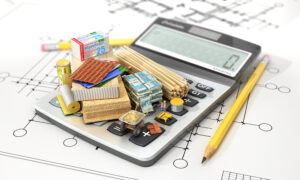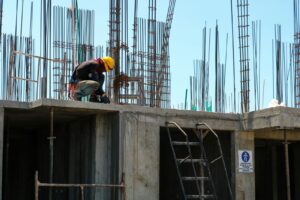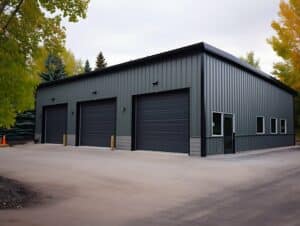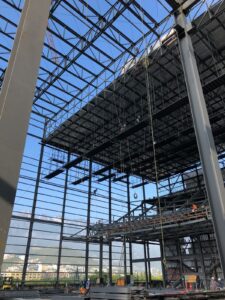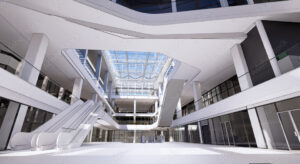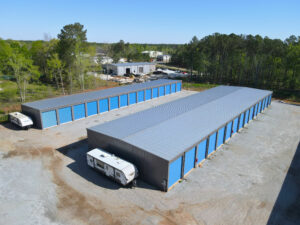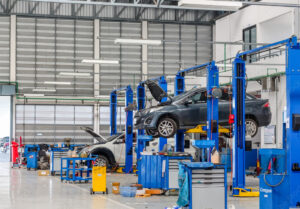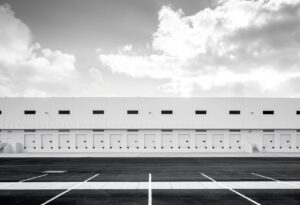Commercial construction is a vital component of the booming economy in College Park, GA– a city that features a thriving business district, with numerous general contracting service providers, companies and industries establishing their presence.
To support these businesses, commercial construction projects are constantly taking place to accommodate the growing demand for office spaces, retail centers, and other commercial facilities.
In this blog post, we’ll discuss the demography of College Park, GA, key aspects, and the process of commercial construction in the city.
Table of Contents
- Understanding The Demography of College Park, GA
- The Commercial Construction Process
- Commercial Construction Services in College Park, GA
- Challenges in Commercial Construction
- Conclusion
- Frequently Asked Questions
Understanding The Demography of College Park, GA
As of 2024, College Park, Georgia has a population of approximately 13,847. The city is predominantly African American, with 82.24% of the population identifying as Black or African American.
The median age is 32.2 years, indicating a relatively young population. The average household income is $73,528, with a poverty rate of 18.09%.
Additionally, the city has a high percentage of renters, with 76.1% of households renting their homes.
This demographic profile supports commercial construction in several ways. The young and diverse population creates a demand for various commercial services and amenities, such as retail stores, restaurants, and entertainment venues.
Check out: Atlanta’s Top Commercial Contractors
The high percentage of renters suggests a transient population that may prefer convenient access to commercial facilities, further driving the need for local businesses.
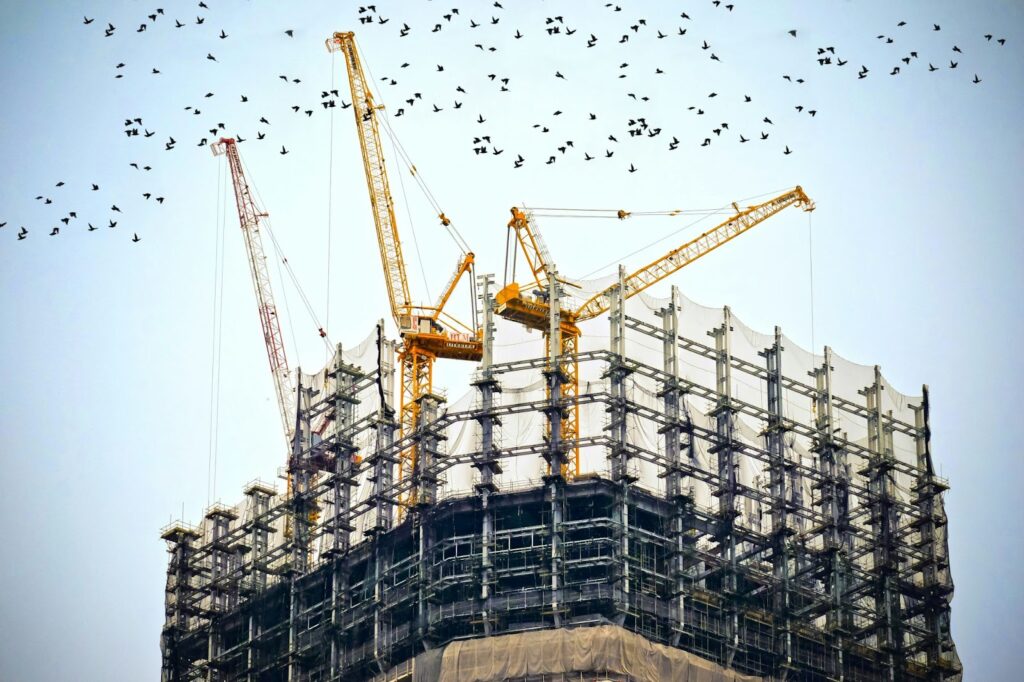
Overview of Commercial Construction in College Park
Commercial construction in College Park, Georgia, is experiencing significant growth, driven by strategic developments and the city’s advantageous location.
One of the most notable projects is the Six West Development, a massive $1.5 billion mixed-use project.
This development spans 311 acres and includes 2.3 million square feet of office space, six hotels, 550,000 square feet of commercial space, and various residential units.
The project aims to transform the area into a vibrant hub for business and living. Its first phase is expected to open by late 2025 or early 2026.
College Park’s proximity to Hartsfield-Jackson Atlanta International Airport, one of the busiest airports in the world, further enhances its appeal for commercial construction.
This strategic location provides easy access to national and international markets, making it an attractive spot for businesses looking to establish or expand their presence.
Additionally, the city’s efforts to eliminate blight and promote urban renewal have created a favorable environment for new commercial projects.
Overall, the combination of strategic location, significant development projects, and proactive economic policies makes College Park a hotspot for commercial construction.
Key Aspects of Commercial Construction in College Park, GA
Commercial construction encompasses several key aspects that distinguish it from other construction projects.
One important aspect is the need to comply with building codes and regulations. This ensures that commercial structures are safe, accessible and meet all requirements.
Unlike residential buildings, which prioritize comfort and aesthetics, commercial structures are designed with the specific needs of businesses and organizations in mind. This includes:
- Zoning and regulations: Compliance with local zoning laws and building codes specific to College Park and Fulton County.
- Proximity to airport: Construction near Hartsfield-Jackson Atlanta International Airport may have height restrictions and noise considerations.
- Economic factors: College Park’s growing economy may influence demand for various commercial property types.
- Climate considerations: Designing for hot, humid summers and mild winters typical of the region.
- Infrastructure: Accounting for existing transportation networks, including MARTA access.
- Permitting process: Navigating the local permitting and approval procedures for commercial projects.
- Labor market: Availability of skilled construction workers in the Atlanta metro area.
- Sustainable building practices: Increasing emphasis on energy efficiency and green building certifications.
- Mixed-use developments: Trend toward combining commercial, residential, and retail spaces.
- Historical considerations: Potential for adaptive reuse or preservation of older structures in some areas.
Check out: Athens, GA’s Trusted Commercial Contractors
The Importance of Commercial Construction
Commercial construction plays a crucial role in the growth and development of College Park, GA.
It provides the necessary infrastructure for businesses to operate and thrive, attracting new investors and boosting the local economy.
From creating job opportunities to enhancing the city’s overall appeal, commercial construction has a significant impact on the community as a whole.
Furthermore, commercial construction projects contribute to the modernization and revitalization of urban areas.
By introducing contemporary architectural designs and state-of-the-art facilities, these projects help transform city skylines and create vibrant commercial hubs.
This not only attracts businesses and consumers but also fosters a sense of community pride and identity.
The Commercial Construction Process
Commercial construction in College Park, Georgia involves several key processes, each designed to ensure that projects are completed efficiently and in compliance with local regulations. Here are the main steps:
Permitting and Plan Review
The City of College Park’s Building and Property Sustainability Department oversees the permitting process.
This includes electronic plan reviews, online permitting, mobile inspections, licensing, and code enforcement through the SagesGov software.
Developers must submit detailed plans for review and approval before construction can begin.
Site Preparation and Land Disturbance
Before construction starts, developers must obtain a Land Disturbance Permit.
This involves preparing the site, clearing vegetation, grading the land, and setting up erosion control measures.
Construction and Inspections
Once permits are approved and the site is prepared, construction can commence.
Throughout the construction process, regular inspections are conducted to ensure compliance with building codes and safety standards.
These inspections cover various stages, including foundation, framing, electrical, plumbing, and final inspections.
Final Approval and Occupancy
A final approval is granted after construction is completed and all inspections are passed. The project must meet all local building codes and safety regulations.
Once approved, a Certificate of Occupancy is issued, allowing the building to be used for its intended purpose.
These processes ensure that commercial construction projects in College Park are carried out safely, efficiently, and in compliance with all relevant regulations.
Working with an experienced general contracting service provider can help you navigate any challenges.
Commercial Construction Services in College Park, GA
Several construction companies in College Park, GA, specialize in providing commercial construction services. These companies offer various solutions to meet the diverse needs of businesses in the area.
When it comes to commercial construction services in College Park, GA, businesses have a plethora of options to choose from.
From modern high-rise buildings to sleek office spaces, these construction companies are well-equipped to handle a wide range of projects, no matter the size or complexity.
Design-Build Services
Design-build services are a popular choice for commercial construction projects. This approach combines the design and construction phases, allowing for a seamless process from start to finish.
By working with a design-build company, clients benefit from streamlined communication, cost savings, and faster project delivery.
Furthermore, design-build services foster a collaborative environment where architects, engineers, and construction teams work together from the project’s inception.
This integrated approach not only enhances creativity and innovation but also ensures that the client’s vision is brought to life as efficiently and effectively as possible.
General Contracting Services
General contracting services are another essential offering in the commercial construction industry. They oversee the entire construction process, coordinating subcontractors and managing the project’s timeline and budget.
They act as the central point of communication between the client, architect, and other parties involved.
Moreover, general contracting services extend beyond the construction phase, as these professionals are also involved in preconstruction planning, ensuring that all necessary permits and approvals are obtained before breaking ground.
Their attention to detail and comprehensive approach help mitigate potential delays and ensure that the project stays on track.
Construction Management Services
They are valuable for larger and more complex commercial construction projects. Construction managers provide expertise in planning, coordinating, and executing the project. They ensure that all elements, such as scheduling, budgeting, and quality control, are carefully managed to achieve successful outcomes.
Additionally, construction management services encompass a wide range of responsibilities, including risk management, safety compliance, and quality assurance.
These professionals act as the client’s representative on-site, overseeing day-to-day operations and making strategic decisions to keep the project moving forward smoothly.
Their proactive approach and problem-solving skills are instrumental in delivering projects that exceed expectations.
Check out: Your Trusted Commercial Contractor In Jackson, GA
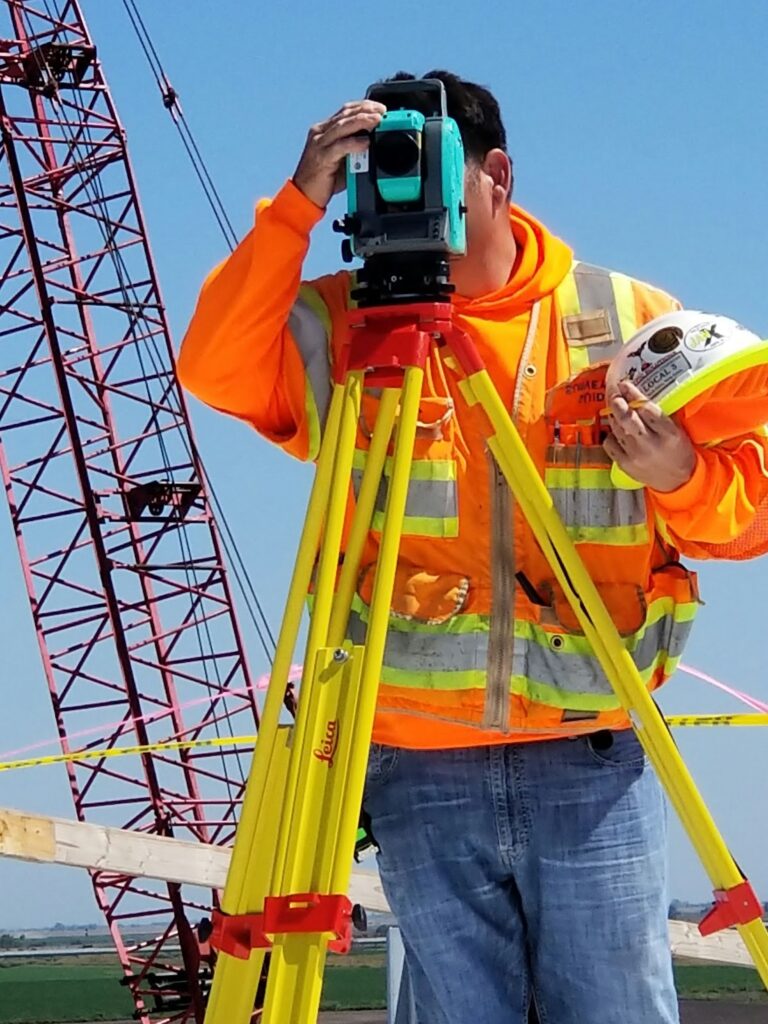
Challenges in Commercial Construction
While commercial construction offers numerous opportunities, it also presents its fair share of challenges. Understanding and addressing these challenges is crucial for the successful completion of projects.
One of the major challenges in commercial construction is managing the logistics of a project.
From coordinating the delivery of materials to scheduling subcontractors, many moving parts need to be carefully orchestrated. This requires hiring a general contracting service provider with local knowledge and effective communication. This ensures everything runs smoothly.
Another challenge in commercial construction is dealing with unexpected issues that may arise during the construction process.
Whether it’s discovering structural issues that need to be addressed or encountering unforeseen site conditions, such as poor soil quality, these unexpected challenges can cause delays and increase costs.
Construction teams need to be prepared to adapt and find solutions to these issues to keep the project on track.
Regulatory Challenges
Compliance with building codes, permits, and regulations is a significant challenge in commercial construction.
Keeping up with the ever-evolving regulations and ensuring that all requirements are met demands careful attention and expertise.
Not only do construction teams need to be knowledgeable about the current building codes and regulations, but they also need to stay informed about any changes or updates that may occur during a project.
This requires constant monitoring and a proactive approach to ensure that the construction process remains compliant.
Environmental Challenges
Commercial construction projects must also navigate environmental challenges. These include minimizing environmental impact, managing waste and pollution, and incorporating green building practices whenever possible.
With the increasing focus on sustainability and environmental responsibility, construction teams are under pressure to incorporate eco-friendly practices into their projects.
This can involve using energy-efficient materials, implementing recycling programs, and designing buildings that are optimized for energy consumption.
By addressing these environmental challenges, commercial construction can contribute to a more sustainable future.
Financial Challenges
Financing commercial construction projects can be complex, especially for small businesses or start-ups. Securing adequate funding and managing the project’s budget throughout its lifecycle requires careful planning and financial expertise.
In addition to securing funding, construction teams also need to closely monitor the project’s budget to ensure that costs are kept under control.
This involves tracking expenses, managing cash flow, and making adjustments as needed to avoid any financial setbacks.
By effectively managing the financial challenges, commercial construction projects can be completed within budget and on time.
Conclusion
Commercial construction in College Park, GA, is essential for the growth and vitality of the city.
It provides the necessary infrastructure for businesses to thrive, while also contributing to job creation and economic development.
By understanding the key aspects of commercial construction, the construction process, available services, and the challenges involved, stakeholders can navigate this industry successfully.
Whether it’s through adhering to building codes, utilizing design-build services, or managing environmental and financial considerations, commercial construction in College Park, GA, continues to shape the city’s landscape and drive its prosperity.
SteelCo has 23+ years of experience delivering PEMB materials nationwide and commercial construction services in all of Georgia and Tennessee.
As a locally awarded general contractor, we offer comprehensive commercial design-build and construction services in College Park. Our services cover a range of materials and building types across industrial, retail/mixed-use, manufacturing and distribution, self-storage, commercial flex spaces, and other sectors.
Additionally, SteelCo just made the Engineering News Record list for the first time and ranked on their list for the Southeast Top 100 Contractors 2024.
————————
Frequently Asked Questions
What are the initial steps to start a commercial construction project in College Park GA?
The initial steps include conducting a feasibility study, understanding the city’s zoning regulations, and meeting with the College Park planning department to discuss your project.
You’ll need to submit a detailed site plan and obtain preliminary approvals before proceeding to the permitting phase.
Are there any financial incentives available for commercial construction projects?
Yes, College Park offers various financial incentives, including tax abatements, tax credits for job creation, and economic development grants. These incentives aim to reduce the cost of development and encourage investment in the area.
What types of permits are required for commercial construction?
Required permits typically include building permits, electrical permits, plumbing permits, mechanical permits, and possibly environmental permits, depending on the project’s scope. It’s essential to consult with the city’s permitting office to ensure all necessary permits are acquired.
How do I apply for a building permit?
You can apply for a building permit online using the SagesGov software. This platform allows for electronic plan reviews, online permitting, and scheduling of inspections.
What are the zoning regulations that I need to be aware of?
Zoning regulations in College Park dictate how land can be used, including the type of businesses allowed, building heights, density, and setback requirements.
It’s crucial to review the city’s zoning map and consult with the zoning department to ensure compliance with all regulations.
How long does it take to get a building permit?
The timeline for obtaining a building permit can vary depending on the complexity of the project and the completeness of the application. Generally, it can take anywhere from a few weeks to a few months. College Park’s streamlined permitting process aims to expedite this timeline.


